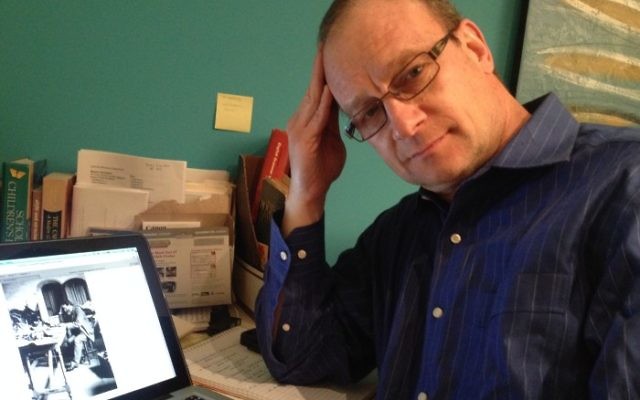Back in the Garden
An absence of more than two months reminds Dave that life goes on, whether or not he's present.
Dave Schechter is a veteran journalist whose career includes writing and producing reports from Israel and elsewhere in the Middle East.
In recent years, this column has regaled (or bored) readers with tales from our garden, reports on the planting, growing, harvesting, and eating of home-grown fruits and vegetables.
This year — until now — readers have been spared such updates, as for more than two months my health did not permit the exertion necessary to tend the garden.
The perennials and new plantings were left to their own devices, unimpeded by efforts to rein them in. The result was unbridled growth contrary to my more orderly inclinations.
The monstrosity that I call “the kiwi plant from hell” celebrated my absence by extending its already overgrown tentacles by several feet in all directions.
The raspberry vines suffered more than usual, as the kiwi’s green canopy blocked the sun’s rays and, without photosynthesis, there were barely a handful of berries worth collecting.
The adjacent blueberry bushes, which I neglected to trim during the winter months, mounted their own assault on the raspberries, while also producing a diminished crop because of the kiwi’s shading.
Along a side fence, the blackberry canes aimed themselves in various directions, but the pickings have been satisfactory.
In the garden box, weeds claimed victory over the beets and cilantro. The basil held its own. The tomato plants breached the confines of their cages, stretching out willy-nilly. The cherry tomato harvest has been steady. I hold out hope that the larger varieties will ripen and make it to our table.
Colorful red and orange marigolds over-flowed the stone border of a circular area in the center of the garden box. So long as they repel insect pests, they are welcomed beyond that boundary.
We never got around to planting one side of the garden box, so there is space available for other herbs and vegetables.
Nearby, the plum tree that was a gift two years ago after the death of my father-in-law continues to grow and has yielded a couple of pieces of fruit.
I have returned to the garden for short periods of time daily, with pruning shears and trowel in hand — I have to work my way back up to larger implements — attempting to bring some order to the chaos.
I was pleased to find, on the website of an Australian hospital, assurance that my gardening activities are appropriate for someone three to four weeks out from my particular heart surgery. No matter how much or how little I do in the garden, that time is as much a part of my recovery as my daily walk or my return to writing.
Numerous studies and reports testify to the benefits of gardening for physical and mental health. An article posted by the Mayo Clinic explained that gardening can moderate levels of a hormone triggered by stress. And stress reduction is good for the heart.
Elsewhere, the elephant ears at the end of the driveway and in front of the house have grown large and sway in a strong breeze.
In the front, a young horticulturist moved a fig tree that I planted a few years ago to a sunnier location where, lo and behold, small fig-lets have appeared.
That tree has prompted more than one Jewish friend to note the words of Micah 4:4, famously quoted by President George Washington in his 1790 letter to the Hebrew Congregation of Newport, R.I., in which he affirmed religious liberty for those who fled tyranny: “Every one shall sit in safety under his own vine and fig-tree and there shall be none to make him afraid.”
As for the yard itself, I’m hardly bothered that our grass more often resembles the rough found at the fringes of a golf course than the groomed fairways modeled elsewhere in the neighborhood.
Despite the impression I may have left in this column, I am not obsessive about the fruit and vegetable garden. I chalk up any success growing produce that we eat to good fortune rather than my attentions. Particularly this year, nature has proven itself superior to nurture.
As with other aspects of life during the past few months, the garden has offered broader lessons of its own. A steady hand is nice, but not always necessary. Not everything requires constant attention. Sometimes it helps to understand that life goes on, whether or not you are present or able to influence a situation.




comments